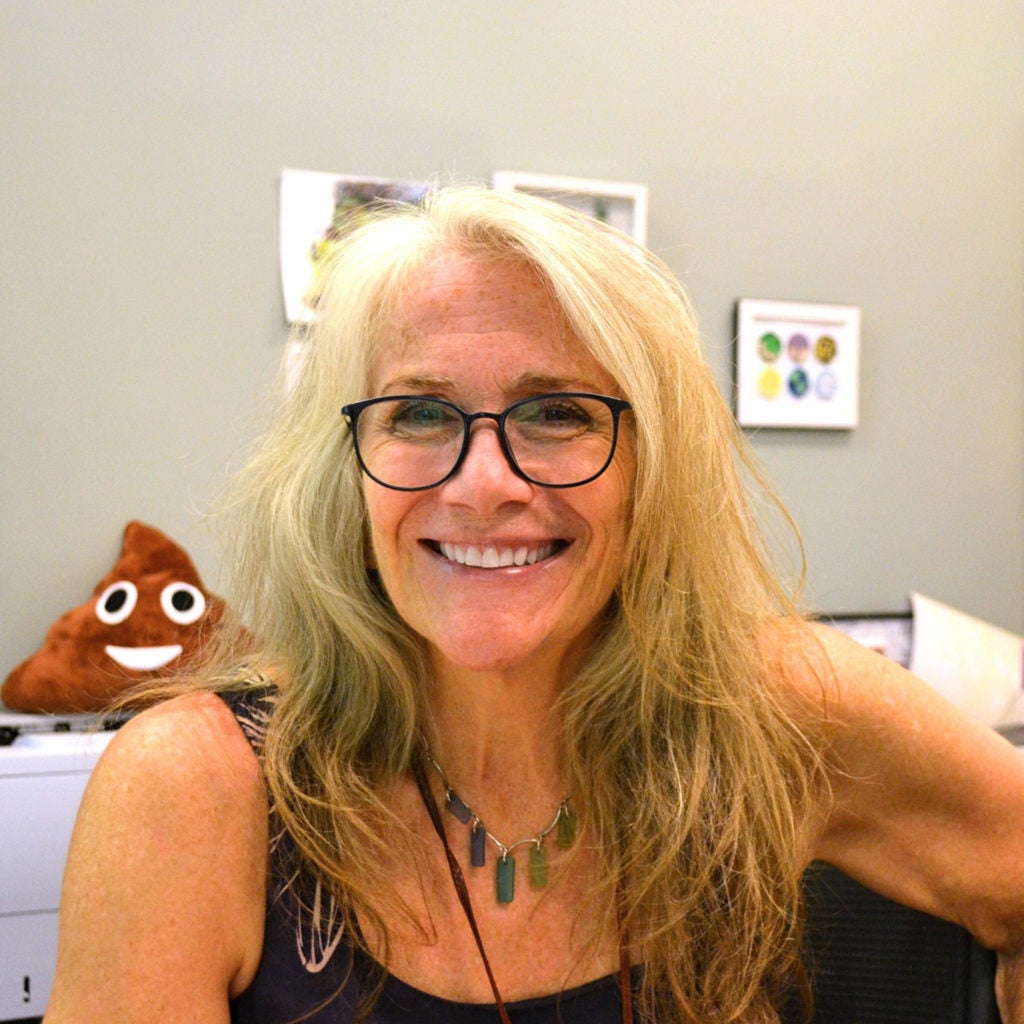Susan Mulroney, Ph.D.: Making dreams come true.

Director, Special Master’s Program
Professor, Department of Pharmacology and Physiology
“In my favorite students, who often may have lower undergraduate GPAs, I see an incredible amount of passion and spark. You give them the chance to be a part of the [SMP Program] and they’re stars.”
At Georgetown University since 1985
The first of its kind.
What makes the Special Master’s Program (SMP) “special” is this whole idea that was espoused back in 1974 by Drs. Estelle Ramey and Larry Lilienfield. They came up with this idea, “Oh yeah, we’ve got this group of really motivated and talented kids who can’t get into medical school based on their current academic credentials, but we believe as long as they are given a chance and work hard, they can do it!” So, they developed a master’s program that students can complete in ten and a half months – throw them in with the big dogs, see how they run – and then on the basis of that, get them into medical school. And that’s essentially how the SMP program became the first of its kind in the country— taking students who were not going to be able to get into medical school, putting them through one of the most rigorous challenges possible, which is Georgetown Medical School, and grading them against the actual medical students.
It’s the best and worst year of your life.
The students just have to do their best in the program. It’s a horrible year. We tell them that this will be the worst year of their lives and the best year of their lives because they are going to work like never before, and there is going to be more stress than ever. But, the students we have in our program do their best, and they are amazing. So, how can we not feel that even though school is crazy every day, that this is just the most rewarding experience to be a part of. We watch the students graduate with their MS degree, fully empowered and confident of their abilities.
“We are the program that has consistently kept the rigor – that’s where the power of the program is – and deans of medical schools throughout the country understand that this is the gold standard for what you want in a medical student and we provide it.”
Physiology is the root of everything.
I love all of physiology – it is an amazing discipline. It’s about how the body works, and so for anyone who is interested in medicine or biomedical research, physiology is at the root of everything. To do pretty much anything in those fields, you need to see how things work in the whole body and how organ systems function and that’s physiology. Being a physiology researcher allowed me to make connections that you could not make if you didn’t have that background. So it’s really fun to learn, and what I want to do with my teaching is project how cool physiology is to the students— hopefully, I do that!
“I’m on your side!”
As a professor, I’m incredibly enthusiastic. I want students to learn and I’ll do anything I can to help them. The material isn’t easy and some people find it very difficult to grasp and put things together, but I want people to see how great it is. Students probably would say that they know we are on their side. A key to student success is to listen to everything we say. Our advising is the best in the country, and we want them to listen. We’re also really fortunate to have amazing students and our SMP students all come here because they need it. Most have been told by advisors, by folks on the outside, “You’re never going to be a physician,” or “You’ll never get to medical school.” That’s funny to me because I look at those same students and say, “You’re going to be amazing and successful as long as you do your best.” So I’m working with this cadre of students who are already motivated and willing to do everything they can to succeed. The key to success is listening – really trying to understand the basic information and not brush it off as “Oh, this is too basic and I don’t need this to move forward,” because each concept builds on the previous. At the level that I get students coming in, about 97% of them are taking their education very seriously at this point. But yes, they just need to listen to us and they’ll be fine.
